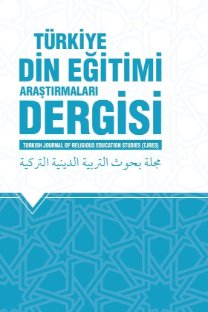İslam Düşünce Geleneğinin Batı Dünyasına Etkileriyle İlgili Tartışmaları Dag Nikolaus Hasse Üzerinden Okumak
Müslüman bilim insanları tarafından yapılan araştırmaların çoğunda İslam medeniyetinin Avrupa’yı bilim ve felsefede etkilediği genel kabul görmektedir. Ancak Batı’daki meslektaşları arasında bu konuda tam bir mutabakatın olduğundan söz edilemez. Batı’da, Müslümanların özellikle Orta Çağ’da Avrupa üzerindeki bilimsel etkisini abartanların yanı sıra söz konusu etkiyi küçümseyen, hatta yok sayanların da olduğu görülür. Bu tartışmaların taraflarından birisi de Alman bilim insanı Dag Nikolaus Hasse’dir. Hasse, bu alanda uzun araştırmalar yapmış bir Orta Çağ ve Yeni Çağ felsefesi ve filolojisi uzmanıdır. Hasse, konu hakkında yaptığı çalışmalarda bilimsel bir yaklaşım sergileyerek objektif olmayı başaran, vardığı sonuçları tartışmanın objesi olan kişi veya eserlerin verili ilk kaynaklarına dayandıran bir bilim insanıdır. Ona göre bu günün Batı medeniyetinin oluşumunda eski doğu, Yunan, Roma, Yahudi ve Hristiyan kültürlerinin yanı sıra Müslümanlardan da söz edilmeli ve bu gerçek ders kitaplarında da yer almalıdır. Elinizdeki çalışma Hasse’nin bu alanda yazdığı bazı eserlerinden yola çıkarak onun, İslam düşünce geleneğinin Batı dünyasına etkileriyle ilgili tartışmalardaki pozisyonunu belirlemeye çalışır.
Anahtar Kelimeler:
Arap-İslam Etkisi, Dag Nikolaus Hasse, Bilim Tarihi, İslam Felsefesi, Orta Çağ Felsefesi
Reading the Debates Concerning the Effects of Islamic Intellectual Tradition on the West via Dag Nikolaus Hasse
The influence of Islamic civilization on Europe in science and philosophy is generally accepted in most of the studies done by Muslim scholars. However, it cannot be said that there is a full consensus on this issue among their colleagues in the West. It is seen in the West that there are those who exaggerate the scientific influence of Muslims on Europe, especially in the Middle Ages, as well as there are thoes who underestimate or even ignore this effect. One of the parties of these discussions is the German scientist Dag Nikolaus Hasse. Hasse, who is an expert of Medieval and New Age philosophy and philology, has done a lot of research in this field. Hasse is a scientist who succeeds in being objective by exhibiting a scientific approach in his studies on the subject, and bases his conclusions on the first sources of the person or works that are the object of the discussion. According to him, Muslims should be mentioned in the formation of today's Western civilization along with the ancient eastern, Greek, Roman, Jewish and Christian cultures, and this fact should also be included in the textbooks. Based on some of his works in this field, the present study attempts to determine Hasse's position in the debates concerning the effects of the Islamic intellectuel tradition on the Western world.
Keywords:
Arabic-Islamic influence, Dag Nikolaus Hasse, history of science, Islamic philosophy, medieval philosophy,
___
- Hasse, D. N. (2000). Avicenna’s De Anima in the Latin West: The Formation of a Peripatetic Philosophy of the Soul, 1160-1300. London/Turin: The Warburg Institute - Nino Aragno Editore.
- Hasse, D. N. (2001). Die humanistische Polemik gegen arabische Autoriäten: Grundsätzliches zum Forschungsstand. Marc Laureys u. Karl August Neuhausen (Hrsg.), Neulateinisches Jahrbuch 3 içinde (ss. 65-79). Hildesheim/Zürich/New York: Georg Olms Verlag.
- Hasse, D. N. (2004). Aufstieg und Niedergang des Averroismus in der Renaissance: Niccolò Tignosi, Agostino Nifo, Francesco Vimercato. J. A. Aertsen, M. Pickavé (Hrsg.), Herbst des Mittelalters? Fragen zur Bewertung des 14. und 15. Jahrhunderts (Miscellanea Mediaevalia 31) içinde (ss. 447-473). Berlin: de Gruyter.
- Hasse, D. N. (2006). Urzeugung und Weltbild: Aristoteles - Ibn Ruschd - Pasteur. Hildesheim/Zürich/New York: Georg Olms Verlag.
- Hasse, D. N. (2008). Pseudowissenschaft vom Abendland: Frankreich streitet über Sylvain Gouguenheim: Der Historiker betreibt islamkritische Legendenbildung am Leitfaden der Regensburger Rede. Frankfurter Allgemeine Zeitung (19. Juni 2008).
- Hasse, D. N. (2010). Latin Averroes Translations of the First Half of the Thirteenth Century. Hildesheim/Zürich/New York: Georg Olms Verlag.
- Hasse, D. N. (2013). Die Überlieferung arabischer Philosophie im lateinischen Westen. H. Eichner, M. Perkams, C. Schäfer (Hrsg.), Islamische Philosophie im Mittelalter - Ein Handbuch içinde (ss 377-400). Darmstadt: Wissenschaftliche Buchgesellschaft.
- Hasse, D. N. (2016) Success and Suppression: Arabic Sciences and Philosophy in the Renaissance. Cambridge: Harvard University Press.
- Hasse, D. N. (2017). Der mutmaßliche arabische Einfluss auf die literarische Form der Universitätsliteratur des 13. Jahrhunderts. Ludger Honnefelder (Hrsg.), Albertus Magnus und der Ursprung der Universitätsidee. Die Begegnung der Wissenschaftskulturen im 13. Jahrhundert und die Entdeckung des Konzepts der Bildung durch Wissenschaft içinde (ss. 241-258 ve ss. 487-491). Weilerswist: Velbrück Wissenschaft.
- Hasse, D. N. (2020). Alkohol’dan Ziffer’a (Alkolden Rakamlara) - Alman Dilinin Aynasında Avrupa’daki Arap Etkisi (Selahattin Akti, çev.) Kilitbahir Dergisi, 17, 224-248.
- Karlığa, B. (2014). Batı’yı Aydınlatan İslam Düşünürü - İbn Rüşd. İstanbul: Mahya Yayıncılık.
- Papst Benedikt XVI. (12. September 2006). Glaube, Vernunft und Universität - Erinnerungen und Reflexionen. http://www.vatican.va/content/benedict-xvi/de/speeches/2006/september/documents/hf_ben-xvi_spe_20060912_university-regensburg.html adresinden elde edildi. (Erişim: 07.09.2020)
- Perkams, M. (2013). Die Bedeutung des arabisch-islamischen Denkens in der Geschichte der Philosophie. Heidrun Eichner, Matthias Perkams und Christian Schäfer (Hrsg.), Islamische Philosophie im Mittelalter: Ein Handbuch içinde (ss. 13-31). Darmstadt: Wissenschaftliche Buchgesellschaft.
- Taşcı, Ö. (2008). Hellmut Ritter. Diyanet İslam Ansiklopedisi içinde (C. 35, ss. 133-134). İstanbul, TDV İslâm Araştırmaları Merkezi.
- ISSN: 2149-9845
- Başlangıç: 2016
- Yayıncı: Mehmet BAHÇEKAPILI
Sayıdaki Diğer Makaleler
Subhî Fahmâvî’nin Romanlarında Dil ve Üslûp
Mazhar DEDE, Mehmet Şirin ÇIKAR
Seçmeli “Temel Dini Bilgiler” Derslerindeki Dini Anlayış ve Dünya Görüşü
Sabahattin BALA, Davut IŞIKDOĞAN
Hicrî I. Asırda Hadis Uydurma Faaliyeti ve Hadis Uyduranların Tespiti
Ḳuşeyrî ve Mâturîdî’nin Ḥurûf-u Muḳāṭta’a Konusuna Yaklaşımı
Müslüman Bir Kadının Ehl-i Kitap’tan Bir Erkekle Evlenmesini Mübah Görenlerin Şüphelerine Reddiye
Arapça’da Kural Uyumsuzluğu ile “Adl” Arasında “Udul” Kavramı
